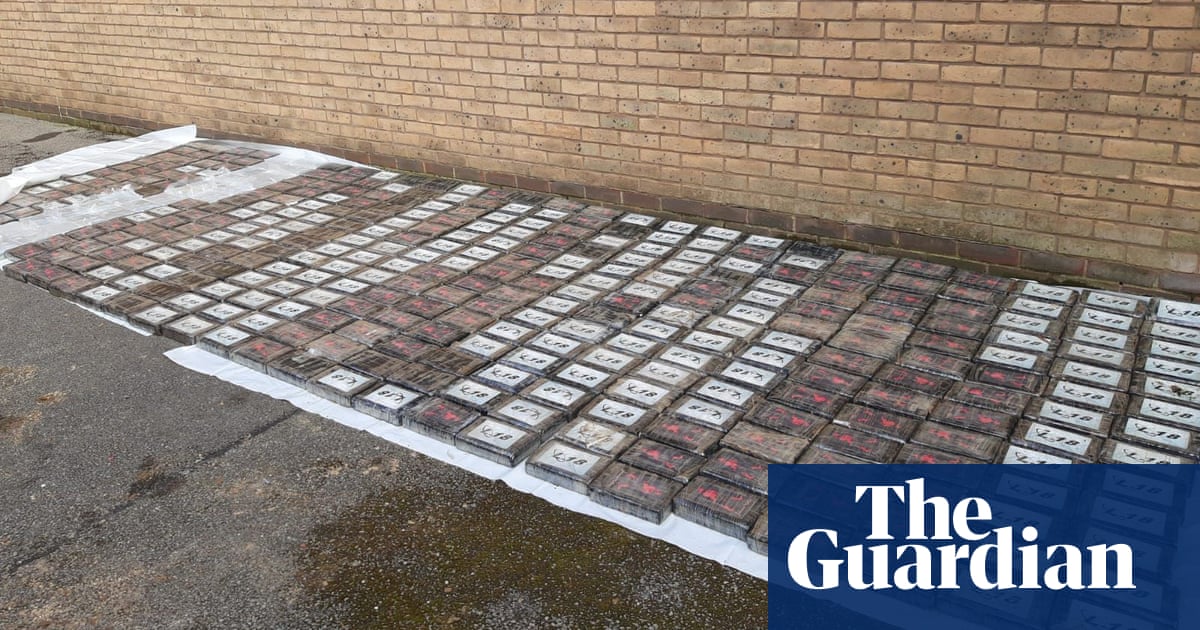
Three men have died after their 4x4 became submerged in the River Esk in the North York Moors amid ferocious weather and severe flooding across parts of the UK on Thursday.
Emergency services, including air support, were called shortly before noon to reports of the men becoming trapped in deep water. Police said the vehicle was recovered at about 3pm.
Residents of parts of Tameside in Greater Manchester were left picking up the pieces after a “localised tornado” from a supercell thunderstorm damaged about 100 properties. Thousands of homes were left without power and a major incident was declared.
Storm Gerrit, the latest named storm to reach the UK, also brought heavy snow, high winds and rain to parts of Scotland, where toppled trees and other debris brought down power lines.
The Met Office said on Thursday afternoon that the worst of the weather was over but there would be blustery and showery conditions overnight and into Friday.
A further bout of very strong winds and a spell of intense rain is expected on Saturday before blustery, showery conditions on Sunday, New Year’s Eve.
By Thursday evening the number of warnings in place for expected flooding in England had risen to 29, concentrated in Cumbria, the Midlands and East and North Yorkshire.
A further 123 flood alerts, where flooding is possible, remained in place in England, particularly in the north and west. There were eight flood warnings and 15 flood alerts in Scotland, and one flood warning and 17 alerts in Wales.
Several train operators, including ScotRail, LNER and Avanti West Coast, suspended some services and advised customers not to travel on some routes.
The tornado is believed to have caused significant damage to homes in Stalybridge, Tameside.
Greater Manchester police (GMP) said they received numerous reports about the incident at about 11.45pm on Wednesday and the force declared a major incident due to the severity of the damage caused and the potential risk to public safety.
The Liberal Democrats called on Rishi Sunak to convene a Cobra meeting after the damage wreaked in the Greater Manchester town. No injuries were reported but many people had to leave their homes.
Residents spoke of hearing about 15-30 seconds of a hurricane-like sound while trees were torn up and roofs ripped off. Richard Harrison, whose car window was smashed by flying debris, told the Manchester Evening News: “It was just lucky no one was killed.”
Matthew Marsland, who lives opposite houses that were badly damaged, said he initially had no idea of the severity.
He told the newspaper: “I saw a piece of tree next to my neighbour’s car, then I looked further along the street and saw a gutter in the middle of the street so I thought I’d go and pick that up, and then I saw my neighbour had had half his house torn off.”
Tameside council said approximately 100 properties had been evacuated after the tornado hit areas of Carrbrook and Millbrook.
Ch Supt Mark Dexter, of GMP, said: “This incident has undoubtedly affected numerous people in the Stalybridge area, with many residents displaced from their properties during the night.
“I would like to urge members of the public to avoid the area where possible and take extra care when travelling in vehicles on the roads in Stalybridge and the surrounding areas, due to debris in the road.”
A second supercell thunderstorm was confirmed to have hit Morecambe Bay in Lancashire hours later. The Met Office said the storm had a “strong rotating updraft”, suggesting that “a tornado at the surface was likely”.
Scottish and Southern Electricity Networks (SSEN) said workers had been dealing with wind speeds of 80mph in some coastal areas as they worked to reconnect customers.
Power had been restored to more than 40,000 properties by Thursday evening, leaving nearly 3,000 homes without power, the company said. About 1,500 properties were expected to be without power until Friday, mainly in the north-east and Shetland Islands.
An SSEN spokesperson said: “The widespread extent of the damage, the ongoing adverse weather conditions, and the challenges accessing faults due to fallen trees, flooding and road closures, together mean that full network restoration will take time. Some customers in rural areas may be off supply for up to 48 hours.”
Storm Gerrit also brought plenty of rain, with the Great Langdale valley in the Lake District recording 80mm – nearly half the usual 178mm monthly rainfall for December, the Met Office said.
The fastest recorded wind gusts so far were 86mph at Inverbervie, on the north-east coast of Scotland, 84mph at Fair Isle and 83mph at Capel Curig, north Wales, the forecaster said.
The Tornado and Storm Research Organisation said a detailed site investigation would need to be undertaken before it could confirm that the damage in Tameside was caused by a rare British tornado.












